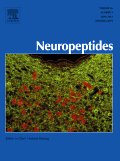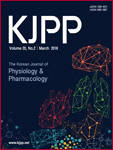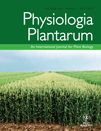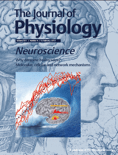
Journal of Physiological Sciences
Scope & Guideline
Connecting Researchers to the Heart of Physiology
Introduction
Aims and Scopes
- Physiological Mechanisms and Pathways:
The journal emphasizes the exploration of physiological mechanisms underlying various biological processes, including cellular signaling, metabolic pathways, and neural functions. - Impact of Exercise and Training:
A significant focus is on how physical exercise and different training regimens affect physiological adaptations, metabolic health, and overall well-being. - Clinical and Translational Research:
The journal facilitates research that bridges basic physiological science with clinical applications, addressing health conditions and therapeutic interventions. - Age-Related Physiological Changes:
Research on how aging affects physiological functions and the underlying mechanisms is a core area, reflecting the growing importance of gerontology in physiology. - Environmental and Stress Physiology:
The journal publishes studies on how environmental factors and stressors impact physiological regulation and adaptation mechanisms in various organisms. - Neurophysiology and Behavioral Physiology:
There is a consistent focus on the relationship between physiological processes and behavior, particularly in the context of the nervous system and sensory functions.
Trending and Emerging
- Interdisciplinary Approaches to Physiology:
There is an increasing trend towards interdisciplinary research that combines physiology with fields such as molecular biology, genetics, and bioinformatics, enhancing the understanding of complex physiological systems. - Impact of Microbiota on Physiology:
The role of gut microbiota in influencing various physiological processes and overall health has gained significant attention, reflecting a broader interest in the microbiome's impact on human health. - Physiological Responses to Environmental Stressors:
Research focusing on how environmental changes, such as climate change and pollution, affect physiological responses is on the rise, highlighting the importance of environmental physiology. - Aging and Longevity Studies:
There is a growing emphasis on understanding the physiological mechanisms of aging and longevity, reflecting societal concerns about aging populations and age-related diseases. - Innovations in Exercise Physiology:
Emerging studies on novel exercise interventions, including high-intensity interval training and their physiological effects, are trending, as researchers explore optimal strategies for health. - Personalized Medicine in Physiology:
The trend towards personalized medicine is becoming more prominent, with research exploring individual physiological responses to treatments and lifestyle modifications.
Declining or Waning
- Traditional Pharmacological Studies:
Research centered solely on traditional pharmacological effects without a physiological context has decreased, as the field moves towards more integrative and mechanistic approaches. - Basic Animal Models Without Clinical Relevance:
There has been a noticeable reduction in studies using basic animal models that do not translate into clinical or human applications, reflecting a shift towards more translational research. - Single-Factor Studies:
Research focusing on single factors affecting physiology, without considering broader interactions or systems biology approaches, has become less common. - Limited Focus on Historical Physiological Concepts:
Papers that primarily revisit historical physiological concepts without new insights or applications have decreased, as the journal encourages innovative and contemporary research.
Similar Journals

Physiological Reports
Igniting Curiosity in the Heart of PhysiologyPhysiological Reports is a pioneering open-access journal published by WILEY, dedicated to advancing the field of physiology through the dissemination of high-quality research. Since its inception in 2013, this journal has provided a platform for innovative studies in both general physiology and medical physiology, making significant contributions to our understanding of biological processes. With an impact factor that reflects its growing influence—as evidenced by its placement in the Q2 category for physiology and medical physiology in 2023—Physiological Reports is positioned as a vital resource for researchers and practitioners alike. The journal encourages the submission of diverse studies ranging from cellular mechanisms to systemic physiology, presenting a unique opportunity for authors to reach a global audience without access barriers. It has established a reputation for rigorous peer review and timely publication, ensuring that cutting-edge research is readily available to stimulate further inquiry and collaboration in the scientific community.

RESPIRATORY PHYSIOLOGY & NEUROBIOLOGY
Pioneering Discoveries in Respiratory Physiology and NeurobiologyRESPIRATORY PHYSIOLOGY & NEUROBIOLOGY, published by Elsevier, is a prominent journal in the fields of respiratory medicine, neurobiology, and physiology. With an ISSN of 1569-9048 and E-ISSN 1878-1519, this journal serves as an essential platform for disseminating high-quality original research and reviews that explore the intricate relationships between respiratory function and neural controls. Located in the Netherlands, it boasts an impressive standing within its field, categorically placed in the Q3 quartile for Neuroscience and Physiology and Q2 for Pulmonary and Respiratory Medicine according to the 2023 metrics. With a Scopus rank of #58 in Pulmonary and Respiratory Medicine and a robust impact factor indicative of its academic influence, the journal aims to foster advancement in understanding the physiological and neurobiological aspects of respiration. Although the journal is not open access, its content is vital for researchers, professionals, and students eager to contribute to the expanding knowledge base in these critical scientific domains.

PFLUGERS ARCHIV-EUROPEAN JOURNAL OF PHYSIOLOGY
Showcasing Excellence in Physiological StudiesPflügers Archiv - European Journal of Physiology, published by Springer Heidelberg, stands at the forefront of physiological research, showcasing groundbreaking studies since its inception in the 1950s. With a distinguished ISSN of 0031-6768 and an E-ISSN of 1432-2013, this esteemed journal maintains a robust reputation, holding Q1 rankings in Clinical Biochemistry, Physiology, and Medical Physiology as of 2023. Its impressive Scopus rankings place it in the top percentile across various categories, including Biochemistry, Genetics and Molecular Biology and Medicine. Pflügers Archiv serves as a vital platform for researchers, professionals, and students, facilitating the dissemination and discussion of advanced physiological concepts and methodologies. Although it does not currently offer open access, its rigorous peer-review process ensures the highest quality publications that contribute significantly to our understanding of physiological science. Explore the depth of physiological research that shapes our academic landscape today.

American Journal of Physiology-Regulatory, Integrative and Comparative Physiology
Elevating the Standard of Physiological ScholarshipThe American Journal of Physiology-Regulatory, Integrative and Comparative Physiology, published by the American Physiological Society, serves as a premier platform for disseminating cutting-edge research in the fields of physiology, emphasizing regulatory, integrative, and comparative studies that advance our understanding of bodily functions. With an ISSN of 0363-6119 and E-ISSN of 1522-1490, this esteemed journal is recognized for its substantial impact, maintaining a 2023 Q2 ranking in both the physiology and medical physiology categories as well as commendable positions in Scopus rankings. The journal has been pivotal since its inception in 1977 and continues to foster interdisciplinary dialogue among researchers, professionals, and students alike, contributing significantly to the evolving landscape of physiological sciences. Although it operates under a traditional subscription model, its commitment to high-quality, peer-reviewed content ensures that it remains an essential resource for anyone engaged in physiological research and education.

Neuropeptides
Unraveling the Mysteries of Biological ProcessesNeuropeptides is a prestigious, peer-reviewed journal published by Elsevier, focusing on the critical role of neuropeptides in various biological processes and their implications in cellular and molecular neuroscience, endocrinology, and neurology. With an impact factor reflecting its influence in the field and a diverse audience ranging from researchers to healthcare professionals, the journal serves as an essential platform for the dissemination of groundbreaking research from 1980 to 2024. Adhering to high academic standards, Neuropeptides holds a Q3 ranking in Cellular and Molecular Neuroscience and Endocrine and Autonomic Systems, alongside a solid Q2 ranking in both Endocrinology and Neurology. This positions the journal at the forefront of its disciplines, contributing valuable insights into the understanding of neuropeptide functions in health and disease. By not operating as an Open Access journal, it ensures sustainability in the publishing process while upholding rigorous review standards. Researchers, professionals, and students are encouraged to engage with the findings published in this journal, which plays a vital role in advancing knowledge and fostering collaboration within the neuroscientific community.

JOURNAL OF EVOLUTIONARY BIOCHEMISTRY AND PHYSIOLOGY
Advancing Knowledge at the Intersection of Biochemistry and PhysiologyJOURNAL OF EVOLUTIONARY BIOCHEMISTRY AND PHYSIOLOGY, published by PLEIADES PUBLISHING INC, is a pivotal periodical that delves into the intricate relationships between biochemical processes and evolutionary dynamics. With its ISSN 0022-0930 and E-ISSN 1608-3202, this journal serves as a comprehensive platform for researchers, professionals, and students dedicated to understanding the physiological adaptations and biochemical mechanisms influenced by evolutionary pressures. Although it is not an open access journal, it offers valuable insights across its historically significant coverage spanning from 1972 to 2017, making it an essential resource for those working in agricultural, biological, and molecular sciences. Despite its current Scopus rankings revealing limited visibility within its fields, the journal remains committed to fostering scholarly dialogue and advancing knowledge in the realm of evolutionary biochemistry, especially for those exploring the ecological, genetic, and integrative physiological aspects of life.

KOREAN JOURNAL OF PHYSIOLOGY & PHARMACOLOGY
Connecting researchers and professionals in the heart of pharmacology.Welcome to the Korean Journal of Physiology & Pharmacology, a pivotal academic platform dedicated to advancing the disciplines of physiology and pharmacology. Published by the esteemed Korean Journal of Physiology & Pharmacology, this journal has been disseminating valuable research findings since its inception in 1997 and continues to be a critical resource for researchers, professionals, and students in South Korea and beyond. With an ISSN of 1226-4512 and E-ISSN of 2093-3827, it offers insights into various aspects of drug action and physiological mechanisms. Although this journal currently does not subscribe to Open Access, it plays a vital role in bridging the gap between experimental and clinical studies, receiving commendations for its quality. In the 2023 Scopus rankings, it is notably positioned in the Q3 quartile for Pharmacology and Q4 for Physiology, reflecting its commitment to excellence. As the journal converges towards its comprehensive coverage in 2024, it remains a cornerstone for those looking to engage deeply with critical developments in these fields.

PHYSIOLOGIA PLANTARUM
Advancing Plant Science Through Innovative ResearchPHYSIOLOGIA PLANTARUM, published by WILEY, is a prestigious journal in the fields of plant science, physiology, and genetics, known for its impactful contributions since its inception in 1948. With an impressive impact factor and a consistent ranking in the Q1 and Q2 quartiles, it stands out in critical disciplines such as cell biology and biochemistry, ranking #24 in Plant Science with a remarkable 95th percentile standing. This journal primarily serves researchers and professionals committed to advancing the understanding of plant functions, responses, and their molecular mechanisms. Its broad scope allows for a diverse array of studies, ensuring that groundbreaking research is accessible to the global scientific community. Although it does not offer Open Access, PHYSIOLOGIA PLANTARUM remains a vital resource for scholars looking to stay at the forefront of plant biology and related fields.

JOURNAL OF COMPARATIVE PHYSIOLOGY A-NEUROETHOLOGY SENSORY NEURAL AND BEHAVIORAL PHYSIOLOGY
Decoding the Neural Mechanisms Behind Animal BehaviorJOURNAL OF COMPARATIVE PHYSIOLOGY A-NEUROETHOLOGY SENSORY NEURAL AND BEHAVIORAL PHYSIOLOGY, published by Springer Heidelberg, is a leading journal in the fields of animal science and zoology, providing vital insights into the neuroethology, sensory processing, and behavioral physiology of various species. With an impressive H-index, the journal has established itself as a credible source of high-quality research since its inception in 1974, maintaining relevance through to 2024. Recognized for its rigorous editorial standards, the journal is categorized in the Q1 rank for Animal Science and Zoology, Q3 in Behavioral Neuroscience, and boasts competitive rankings across several other disciplines, indicating its broad impact within the scientific community. While the journal is currently not open access, its articles can be crucial for advancing knowledge in comparative physiology and fostering interdisciplinary discussions among researchers, professionals, and students alike. By publishing original research, reviews, and critical commentaries, the journal continues to be a cornerstone for those exploring the intricate connections between neural mechanisms and behavioral adaptations.

JOURNAL OF PHYSIOLOGY-LONDON
Advancing the Frontiers of Physiology and Sports ScienceJOURNAL OF PHYSIOLOGY-LONDON, published by WILEY, stands as a prestigious beacon in the fields of Physiology and Sports Science. Established in 1878, this journal has a rich history of disseminating crucial research findings and advancing scientific knowledge, continuing its impact into the present day with an anticipated convergence in 2024. Recognized for its excellence, it ranks in the Q1 category for both Physiology and Sports Science in 2023, cementing its position within the top echelons of academic publications. With a Scopus rank of #26 out of 193 in the Biochemistry, Genetics and Molecular Biology _ Physiology category, the journal boasts an impressive 86th percentile, reflecting its high-quality contributions to the scientific community. Although not open access, its extensive archive and reputation ensure that it remains a vital resource for researchers, professionals, and students eager to stay at the forefront of physiological science. For those looking to deepen their understanding of physiological mechanisms and their applications, the JOURNAL OF PHYSIOLOGY-LONDON is an indispensable resource.